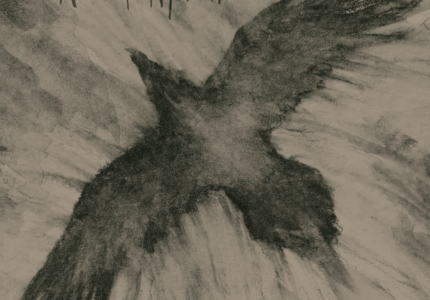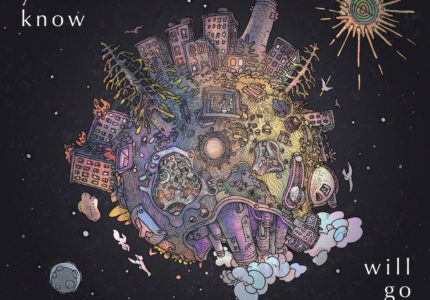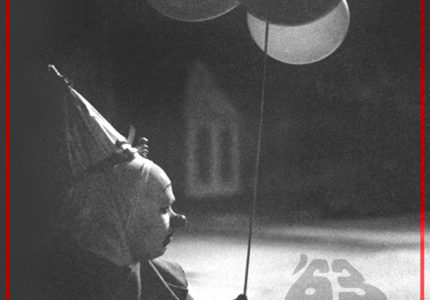For obsessive music fans, there comes a defining moment with a band you love. The band would call it “getting their big break.” We call it “selling out.” When the common public notices a band, buys their album or goes to their concert, we stand there with arms crossed and defiantly say things like: “Their first album was so much better; they’re just in it for the money now.”1
Deep down, we know that’s not true. We feel jilted. Our favorite band has betrayed our undying loyalty by going mainstream. And for what? Several thousand new record sales and a bunch of thumbs up on Facebook?
They were our best kept secret; our secret handshake. Now, everyone is doing the fist-bump explosion. The space we called our own is now inhabited by a bunch of interlopers and we’re forced into the woods to find a new space to stake just for ourselves and our best friends. We have to find a new band to secretly obsess over, because someone like Against Me! now belongs to the masses.
Looking at the timeline for Against Me! it looks like this is something they have dealt with every step of the way. With every new album release, old fans dropped off, accusing them of selling out. New fans that jumped on the bandwagon would jump off with the next release, saying now they were not punk enough anymore. Yet, Tom Gabel and his band mates soldiered on.
As I have passed through the idealistic ages of my late teens and twenties, I have tried setting aside my pretentious judgment of bands I do not know and whether they did, or did not, sell out. For bands like Against Me! and Rise Against, or any other band with the word “Against” in their name, I try to keep two things in mind before resorting to pouting that “they’ve lost their edge and their meaning.”
1) Based on everything I’ve read about the music industry and record labels, any time a band can actually get some momentum behind an album and honestly make some money, I say “good for them.” Any revenue generated by the band is divided into a funny looking pie. A huge piece goes to the record company, then a slightly smaller piece goes to the IRS, a smaller piece to managers, on and on until the band gets their tiny portion to split amongst themselves. Imagine having to tour non-stop just to make any money for yourself, never being home for more than a few weeks at a time. If you had to record a pop album to pay rent on time and eat something other than ramen noodles, how quickly would you write a song with only three chords?
2) Punk is an incredibly tough musical genre to age in. Fighting establishment and “the man” is a young person’s game. A lot of the ideologies get stale and with a little perspective, you realize these movements end up being the machine they hate in the first place.
What a great transition back to White Crosses! “I Was a Teenage Anarchist” is exactly about what takes place in the second point. Listening to the album, you can tell this was a very personal record for Tom Gabel, as many of the songs look to the past. “Because of the Shame” is full of reflection and regret and “We’re Breaking Up” is full of thoughts anyone who has said those words has had in their head.
This second collaboration with producer Butch Vig has shed a lot of the punk sound the band was already losing on Vig’s first production, New Wave. They are a much easier pill to swallow for Top 40 stations; there are fewer anthems on this record and more radio friendly hits. But it is hard to tell: is this a punk album? A pop album? A rock album?
White Crosses certainly passes the rock album checklist: The title track sets the tone for the album, which is carried by “I Was a Teenage Anarchist” and rides the crests and troughs of momentum to a great closing in “Bamboo Bones.” It qualifies as a pop album. Gabel’s voice has lost a lot of the grit from his earlier work and most tracks have more of a pop feel, often accompanied by a piano, an atypical instrument to find in a punk band. Is it punk enough? “Rapid Decompression” has all the makings of a punk song, and “High Pressure Low” is full of political posturing. But comparing it their first bigger label release: 2005’s Searching for a Former Clarity, there is not much “punk” material that is similar.
Those that are looking to enjoy the entire catalog by Against Me! will find the transition between albums a little jarring. Those who enjoy shaking their fist at the man will find White Crosses a slap in the face by the band’s paycheck. People who enjoy what this album is giving them may find Searching for a Former Clarity a little too abrasive. Decide which side you are on, and take a listen to New Wave, a record with feet in both camps. Then ask yourself if you are willing to take a step to learning about their past or looking ahead to their future.
Whatever you decide, don’t accuse a band of selling out, because selling is how a lot of bands you love make a living doing what they love.2
1. We are such a fun group to be around.
2. But feel free to tell me if you hate it when I write editorials.




